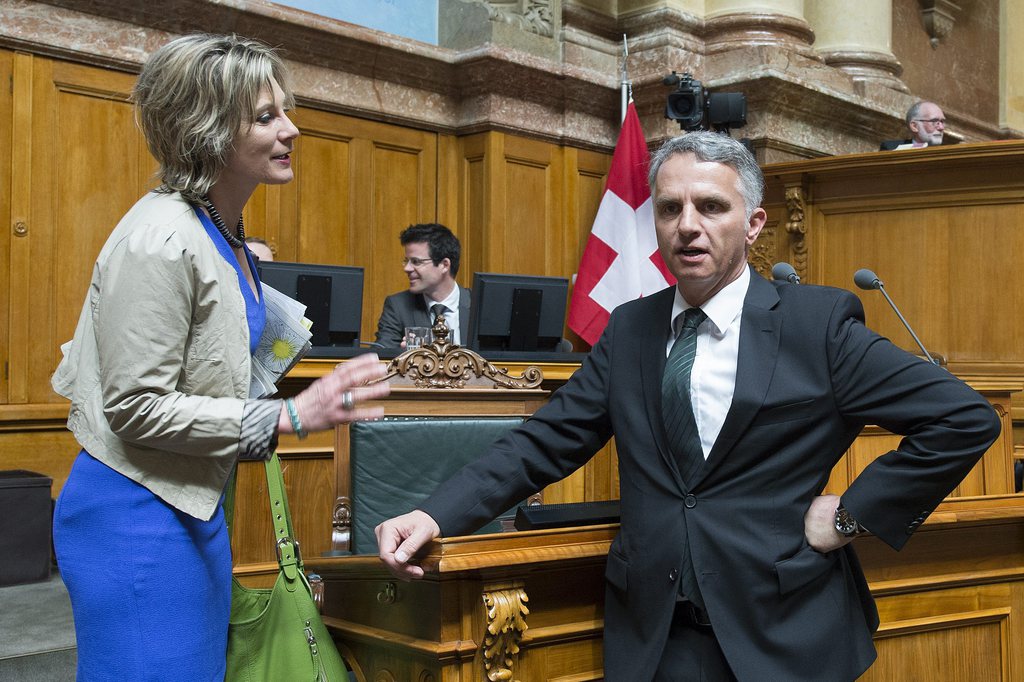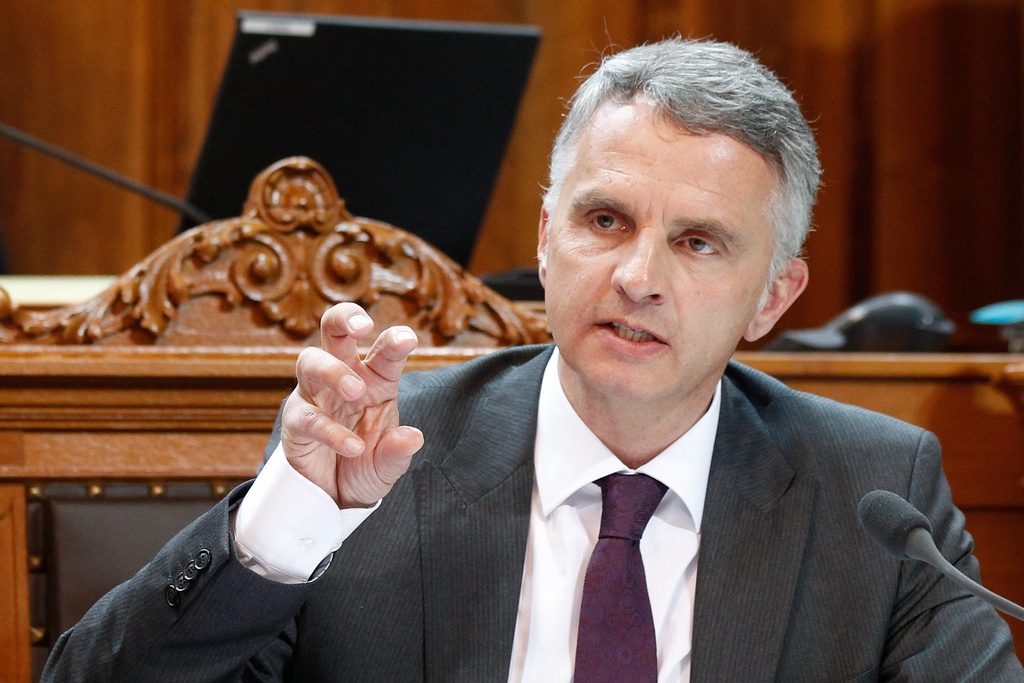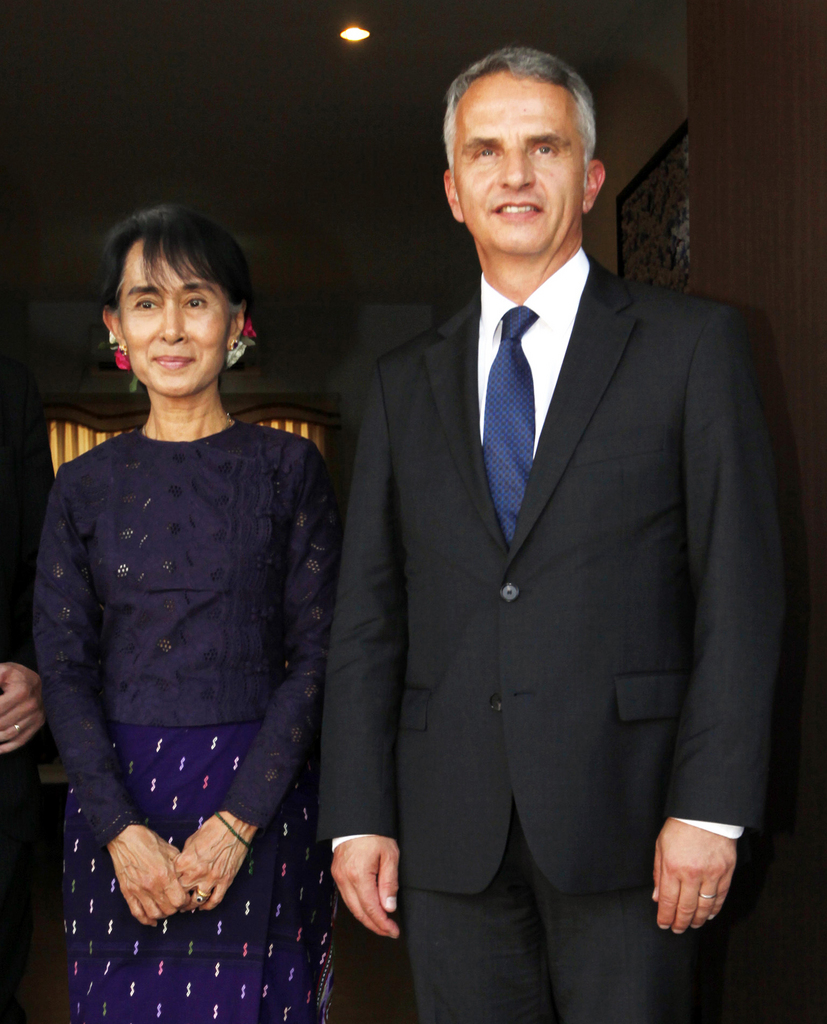Parliament opposes diplomatic cutbacks

Parliament has pressured the government to reverse its decision to shut the Swiss embassy in Guatemala and the consulate general in Chicago. Swiss expats, humanitarian groups and business representatives had protested the closure plans.
An overwhelming majority in the House of Representatives on Tuesday backed proposals by the foreign affairs committee calling on Foreign Minister Didier Burkhalter to reconsider the closures of the Swiss representations. Those opposing a reconsideration were mostly members of the Radical Party.
The decision still needs to be confirmed by the Senate.
Members of the foreign affairs committee argued the closure of Swiss diplomatic representations abroad made little sense from a political point of view.
Dismissing purely financial reasons as a valid argument, they said the planned closures undermined the work of non-governmental organisations, Swiss businesses and, not least, the expatriate communities in central and northern America.
They also pointed out that a permanent Swiss presence in Guatemala was important for a planned free trade accord with central American states.
The government seeks to withdraw its ambassador to Guatemala City and suspend its consulate general in Chicago by next year as part of a broad reorganisation of its diplomatic network.

More
Closures in America cause concern and dismay
Financial concern
Foreign Minister Burkhalter told parliament it was difficult to maintain the current policy with the personnel available and with the planned government spending cuts.
“Either we get more money, or we have to close down certain embassies,” he said.
Under a government plan, the foreign ministry is to cut spending by CHF20 million ($21.5 million) by 2014 from its CHF300 million budget for the diplomatic network.
Switzerland has shuttered more than 60 consulates and consular units around the world since 1990. But only one embassy has been closed so far – the representation to East Berlin following the fall of the Berlin Wall.
Burkhalter also pointed out the need to expand Switzerland’s diplomatic presence in Asia and the Arab peninsula. He added that the foreign ministry has recently been restructuring and rationalising its offers for the expatriate community, introducing online services.
During the debate, Burkhalter pledged to set up an honorary consulate in Chicago and stated that Switzerland’s interests in Guatamala would be represented by its ambassador to Costa Rica after the planned changes.
More than 715,000 Swiss citizens live abroad, according to official data from December 2012.
Most of them are registered in neighbouring countries France, Germany and Italy, but there is also a large Swiss community in North America.
About 150,000 Swiss expats have registered to take part in nationwide votes and in elections in Switzerland.
Switzerland currently has 173 Swiss embassies and missions attached to international organisations as well as general consulates across the world.
Signal
The Organisation of the Swiss Abroad (OSA) has welcomed the parliamentary chamber’s opposition to the closures as a strong political signal.
“Our network of embassies and consulates must not be dismantled any further,” says OSA director Rudolf Wyder.
“It was encouraging to see both the political left and right have realised that Switzerland’s visible presence suffers if representations are closed,” he added.
Parliamentarians Carlo Sommaruga of the centre-left Social Democratic Party and Roland Büchel of the rightwing Swiss People’s Party joined forces to challenge the government plans.
“The message from parliament is clear. It makes no sense to close embassies in so-called fragile countries, including Guatemala, where non-governmental organisations have been doing an excellent job for a long time,” he said.
Sommaruga called on Foreign Minister Burkhalter to explain to his colleagues in cabinet that more funds are needed to maintain the diplomatic network.
“Unlike European Union member countries, Switzerland can’t rely on cooperation with other states to represent its interests,” he added.
Büchel, for his part, says it would be wrong to withdraw from Guatemala when the central American state is planning to reopen its own embassy to Switzerland.
Tuesday’s decision by parliament also sends a clear signal to Swiss expatriates and businesses in American Midwest region represented by the Chicago consulate, he says.
“I’m confident the Senate is reasonable enough to come to the same conclusion as the House of Representatives.”

In compliance with the JTI standards
More: SWI swissinfo.ch certified by the Journalism Trust Initiative




You can find an overview of ongoing debates with our journalists here. Please join us!
If you want to start a conversation about a topic raised in this article or want to report factual errors, email us at english@swissinfo.ch.